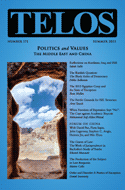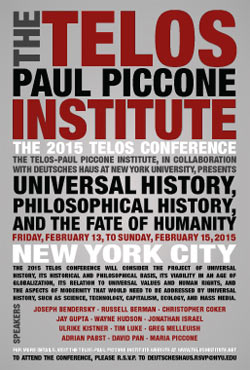By Sabah Salih · Wednesday, July 15, 2015
 The recent dramatic rise of Kurdistan as a major power player in the Middle East could not have happened without America’s 2003 regime change in Iraq. The change also resulted in a dramatic rise in the standard of living and in the way people live their lives and think about themselves and their world. Contrary to the common view in the West, the intervention did not break up a unified Iraq; it rather sped up the unraveling of colonialism’s post–World War I handiwork, which stupidly imposed the tyranny of a minority on the majority. Saddam Hussein laid the groundwork for ISIS’s emergence with his creation of Saddam’s Fidayeen paramilitary force following the first Gulf War. The recent dramatic rise of Kurdistan as a major power player in the Middle East could not have happened without America’s 2003 regime change in Iraq. The change also resulted in a dramatic rise in the standard of living and in the way people live their lives and think about themselves and their world. Contrary to the common view in the West, the intervention did not break up a unified Iraq; it rather sped up the unraveling of colonialism’s post–World War I handiwork, which stupidly imposed the tyranny of a minority on the majority. Saddam Hussein laid the groundwork for ISIS’s emergence with his creation of Saddam’s Fidayeen paramilitary force following the first Gulf War.
Continue reading →
By David Pan · Thursday, April 9, 2015  The worldwide reaction to the Charlie Hebdo attacks can be seen as a welcome indication of a global consensus concerning freedom of speech, individual rights, and opposition to Islamic fundamentalism. However, left-wing critics such as Noam Chomsky have criticized the worldwide demonstrations against the attacks as hypocritical because they ignore the more serious massacres that have been conducted by Americans with drone strikes and in military activities in Iraq, Serbia, and Syria. As Chomsky writes, “[a]lso ignored in the ‘war against terrorism’ is the most extreme terrorist campaign of modern times—Barack Obama’s global assassination campaign targeting people suspected of perhaps intending to harm us some day, and any unfortunates who happen to be nearby. Other unfortunates are also not lacking, such as the 50 civilians reportedly killed in a U.S.-led bombing raid in Syria in December, which was barely reported.” Such an equation of “their terror” with “our terror” is based on an image of a universal history in which all of mankind lives within a unified natural community and there is a single standard of measure that could be the basis of criminal behavior. We see this same approach in a more moderate form in Jack Miles’s similar exhortation that the proper response to ISIS and Al Qaeda is that “[y]ou are criminals and we send criminals to jail” rather than declaring a “war on radical Islam.” For both Chomsky and Miles, terrorist attacks count as criminal activity and should be equally condemned from the universal viewpoint of a peace-loving humanity. By diminishing the difference between criminal violence and war, they illustrate the basic tenet of a version of universal history—that all humans are linked together into a common set of natural laws and that such laws transcend historical and political differences. Every war in this perspective would be just as senseless and unjustified as any other form of murder. Teju Cole and Slavoj Žižek make a similar move when they indicate that there is something hypocritical about the support for Charlie Hebdo when other massacres, such as the one by Boko Haram in Baga, Nigeria, go unnoticed and unmourned. The worldwide reaction to the Charlie Hebdo attacks can be seen as a welcome indication of a global consensus concerning freedom of speech, individual rights, and opposition to Islamic fundamentalism. However, left-wing critics such as Noam Chomsky have criticized the worldwide demonstrations against the attacks as hypocritical because they ignore the more serious massacres that have been conducted by Americans with drone strikes and in military activities in Iraq, Serbia, and Syria. As Chomsky writes, “[a]lso ignored in the ‘war against terrorism’ is the most extreme terrorist campaign of modern times—Barack Obama’s global assassination campaign targeting people suspected of perhaps intending to harm us some day, and any unfortunates who happen to be nearby. Other unfortunates are also not lacking, such as the 50 civilians reportedly killed in a U.S.-led bombing raid in Syria in December, which was barely reported.” Such an equation of “their terror” with “our terror” is based on an image of a universal history in which all of mankind lives within a unified natural community and there is a single standard of measure that could be the basis of criminal behavior. We see this same approach in a more moderate form in Jack Miles’s similar exhortation that the proper response to ISIS and Al Qaeda is that “[y]ou are criminals and we send criminals to jail” rather than declaring a “war on radical Islam.” For both Chomsky and Miles, terrorist attacks count as criminal activity and should be equally condemned from the universal viewpoint of a peace-loving humanity. By diminishing the difference between criminal violence and war, they illustrate the basic tenet of a version of universal history—that all humans are linked together into a common set of natural laws and that such laws transcend historical and political differences. Every war in this perspective would be just as senseless and unjustified as any other form of murder. Teju Cole and Slavoj Žižek make a similar move when they indicate that there is something hypocritical about the support for Charlie Hebdo when other massacres, such as the one by Boko Haram in Baga, Nigeria, go unnoticed and unmourned.
Continue reading →
|
|
 The recent dramatic rise of Kurdistan as a major power player in the Middle East could not have happened without America’s 2003 regime change in Iraq. The change also resulted in a dramatic rise in the standard of living and in the way people live their lives and think about themselves and their world. Contrary to the common view in the West, the intervention did not break up a unified Iraq; it rather sped up the unraveling of colonialism’s post–World War I handiwork, which stupidly imposed the tyranny of a minority on the majority. Saddam Hussein laid the groundwork for ISIS’s emergence with his creation of Saddam’s Fidayeen paramilitary force following the first Gulf War.
The recent dramatic rise of Kurdistan as a major power player in the Middle East could not have happened without America’s 2003 regime change in Iraq. The change also resulted in a dramatic rise in the standard of living and in the way people live their lives and think about themselves and their world. Contrary to the common view in the West, the intervention did not break up a unified Iraq; it rather sped up the unraveling of colonialism’s post–World War I handiwork, which stupidly imposed the tyranny of a minority on the majority. Saddam Hussein laid the groundwork for ISIS’s emergence with his creation of Saddam’s Fidayeen paramilitary force following the first Gulf War.  The worldwide reaction to the Charlie Hebdo attacks can be seen as a welcome indication of a global consensus concerning freedom of speech, individual rights, and opposition to Islamic fundamentalism. However, left-wing critics such as Noam Chomsky have criticized the worldwide demonstrations against the attacks as hypocritical because they ignore the more serious massacres that have been conducted by Americans with drone strikes and in military activities in Iraq, Serbia, and Syria.
The worldwide reaction to the Charlie Hebdo attacks can be seen as a welcome indication of a global consensus concerning freedom of speech, individual rights, and opposition to Islamic fundamentalism. However, left-wing critics such as Noam Chomsky have criticized the worldwide demonstrations against the attacks as hypocritical because they ignore the more serious massacres that have been conducted by Americans with drone strikes and in military activities in Iraq, Serbia, and Syria. 

